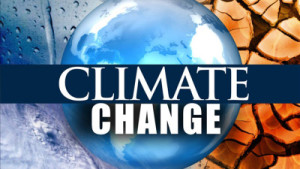
By Sarah Mac Donald - 29 April, 2015
 Human-induced climate change is a scientific reality, a group of religious, scientific, political and business leaders have said following their meeting at the Vatican for a conference on climate change.
Human-induced climate change is a scientific reality, a group of religious, scientific, political and business leaders have said following their meeting at the Vatican for a conference on climate change.
The conference, entitled ‘Protect the Earth, Dignify Humanity: The Moral Dimensions of Climate Change and Sustainable Humanity’ was organised by the Pontifical Academy of Sciences, the Pontifical Academy of Social Sciences, SDSN and Religions for Peace.
The leaders warned that mitigation “is a moral and religious imperative for humanity” and that humans have the technological and financial means, and the know-how, to combat human-induced climate change, while at the same time eliminating global poverty.
“We join together from many faiths and walks of life, reflecting humanity’s shared yearning for peace, happiness, prosperity, justice, and environmental sustainability,” they said in a statement issued on Tuesday.
They said they had considered the “overwhelming scientific evidence” regarding human-induced climate change, the loss of biodiversity, and the vulnerabilities of the poor to economic, social, and environmental shocks.
“In the face of the emergencies of human-induced climate change, social exclusion, and extreme poverty, we join together to declare that: human-induced climate change is a scientific reality, and its decisive mitigation is a moral and religious imperative for humanity,” they stated.
The world’s religions, they suggested, had a “very vital role” to play in addressing the problem.
“The poor and excluded face dire threats from climate disruptions, including the increased frequency of droughts, extreme storms, heat waves, and rising sea levels,” they warned.
They added that the world has within its technological grasp, financial means, and know-how the means to mitigate climate change while also ending extreme poverty, through the application of sustainable development solutions including the adoption of low-carbon energy systems supported by information and communications technologies;
Calling for the financing of sustainable development, including climate mitigation, to be bolstered through new incentives for the transition towards low-carbon energy, and through the relentless pursuit of peace, they suggested that they would facilitate a shift of public financing from military spending to urgent investments for sustainable development;
“The world should take note that the climate summit in Paris later this year (COP21) may be the last effective opportunity to negotiate arrangements that keep human-induced warming below 2 degrees Celsius, and aim to stay well below 2 degree C for safety, yet the current trajectory may well reach a devastating 4 degrees C or higher.”
They said political leaders of all UN member states have a special responsibility to agree at COP21 to a bold climate agreement that confines global warming to a limit safe for humanity, while protecting the poor and the vulnerable from ongoing climate change that gravely endangers their lives.
The high-income countries should help to finance the costs of climate-change mitigation in low-income countries as the high-income countries have promised to do, they challenged.
Climate-change mitigation will require a rapid world transformation to a world powered by renewable and other low-carbon energy and the sustainable management of ecosystems.
These transformations should be carried out in the context of globally agreed Sustainable Development Goals, consistent with ending extreme poverty; ensuring universal access for healthcare, quality education, safe water, and sustainable energy; and cooperating to end human trafficking and all forms of modern slavery.
However, in parallel with the Vatican conference on climate change, climate change sceptics who also met in Rome accused Pope Francis of being ill-informed about global warming.
While the Vatican and the UN, though Pope Francis and UN Secretary-General, Ban Ki-Moon both lent their support to the one-day Vatican conference – ‘The Moral Dimensions of Climate Change and Sustainable Development’, the British and American sceptics said the Pope was being fed “mistaken” advice from the UN.
They called for him to restrict his views to morality and theology rather than getting involved in the climate change debate.
Pope Francis is due to publish an encyclical on climate change in the next few weeks and it is believed he will blame human activity for the increased threat.
He is also due to address the UN Special Summit on Sustainable Development in September, ahead of a climate change summit in Paris in December.